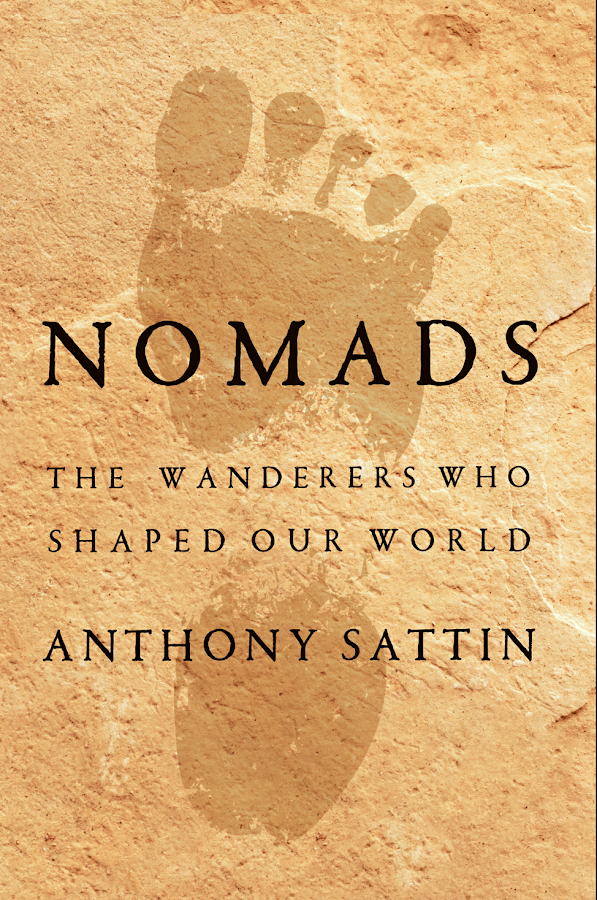There's no shortage of books about business, and no shortage of people asking me if I've read this, that or the other thing. I read Bob Hoffman's books, voraciously, and of course Dave Trott's books as well. I think I've read every book Rich Siegel has published and one or two other books about advertising, including George Lois' rant, "Damn Good Advice," and Ogilvy on advertising and Jerry Della Femina's "Pearl Harbor" opus.
But mostly I read big histories that, no matter what their topic, to my peripatetic mind help me unravel the universal truths of life on our fading pale blue dot.
I subscribe, by the way, at least conceptually, to the old idea that "Ontogeny recapitulates phylogeny." That is the processes of a single organism resemble the processes of an entire species. Think about how our planet got populated with mammalian life and how a human being is born. From water, growth, emergence. That was stupidly simplified, but I hope you get the point.
In any event, it seems to just about everyone in my social circles, most of whom have spent a lifetime in advertising, that advertising as we've always known it has collapsed or is collapsing. So, accordingly or lugubriously, I've been thinking about the life-cycle of business and the businesses that make up an industry.
In my time, I've seen so many agencies come and go. Places that seemed great and unstoppable one year seem to be gone the next--literally just disappeared without a trace. Ammirati. Scali. Ally. Levine. Hal Riney. Cole & Weber. Borders Perrin Norrander, Mandlebaum Mooney, Goldberg, Moser, O'Neill and many others I'm forgetting for the moment.
Sure, most of these have been merged or subsumed by another agency--but to have left nothing behind, seems sad to me. It's worse than those ghost towns you hear about that at least left some old buildings and a parking meter or two. With an enterprise based on intellectual capital, there are no physical remnants to toss onto the ash heap/dust bin of history.
I'm reading right now (my most-often repeated sentence) a book called "Nomads: The Wanderers Who Shaped Our World," by Anthony Sattin.
It's a fairly comprehensive treatment of peoples we tend not to think about. After all, Nomads don't leave behind great cities, or written texts, or statues of their heroes. They travel light and throughout history have left hardly a trace. (Though it's been estimated that 1/200 people on our dying sphere have some of Ghenghis Khan's DNA floating through their veins. He was a notorious trick-or-treater, but wasn't looking for Twizzlers.)
Sattin writes about a great 14th and 15th Century Arab sociologist Ibn Khaldun who most-famously wrote the "Muqaddimah." Critics have compared Ibn Khaldun's work to "influential European philosophers such as Niccolò Machiavelli, Giambattista Vico, David Hume, G.W.F. Hegel, Karl Marx, and Auguste Comte as well as the economists David Ricardo and Adam Smith, suggesting that their ideas found precedent (although not direct influence) in his."
Back to the agency world.
And the rise and fall of it as we speak.
Here's how Khaldun writes about the rise and fall empires. It seems to align with every agency, every entity I've ever seen or worked at.
‘The first stage is that of success, the overthrow of all opposition, and the appropriation of royal authority from the preceding dynasty.’ This is achieved thanks to asabiyya [A group of enthusiasts that forms around a charismatic or powerful leader].
The second stage consolidated power and royal authority in the hands of the leader, but to the exclusion of the group – the aim, here, is ‘to blunt the aspirations of the people who share in his group feeling’.
In the third stage, the leader settles for a life of peace and luxury, decrees laws, commissions buildings, equips a fine army and hands out largesse to his own people and to foreign ambassadors.
Next comes a phase of contentment in which the new ruler mimics his predecessors, lives in peace with his royal peers and ‘thinks that to depart from tradition would mean the destruction of his power’.
Finally there is the downfall, in which ‘the ruler wastes on pleasures and amusements (the treasures) accumulated by his ancestors."
Considering my age and my wisdom and my success with GeorgeCo., it strikes me as sad that there's not a single "leader" in the advertising industry, at either the holding company or the agency level, who will read this or even care to discuss it. I can barely think of one who would consider it possible for a "creative" to have a business continuity or leadership thought.
But as far as I can tell, Ibn Khaldun laid it all out for us, and maybe for our benighted country, too.
In any case, that's why I don't read "business" books.


No comments:
Post a Comment